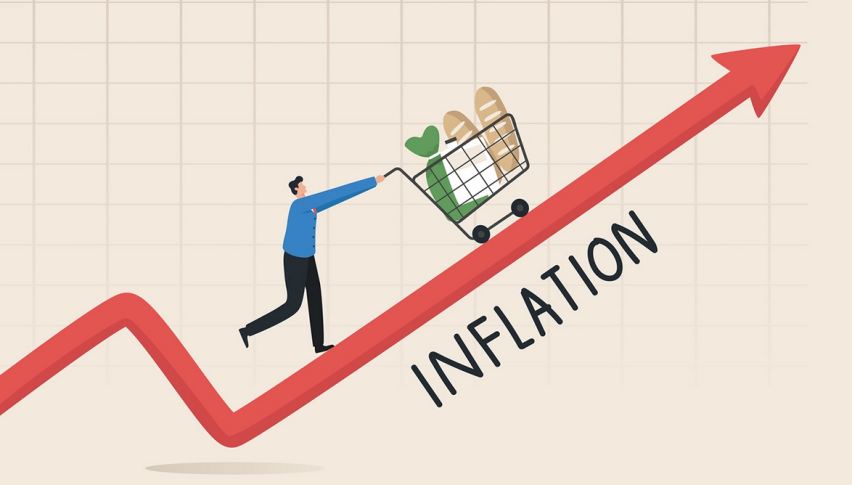UK Inflation Surprises, Accelerates to 3.8% in July
Wage growth has slowed but remains close to 5%, a level the BoE views as inconsistent with a rapid return of inflation to its 2% target.

Quick overview
- UK inflation rose to 3.8% in July, exceeding the expected 3.7%, which may delay interest rate cuts by the Bank of England.
- The Consumer Price Index increased by 0.1% month-on-month, contrary to predictions of a decline, while the Retail Price Index rose 0.4%.
- Analysts suggest that persistent inflation and recent growth surprises will lead to a tighter monetary policy from the Bank of England.
- Key inflation drivers include rising utility bills, a tight labor market, and increased transport costs, particularly airfares.
UK inflation rose more than expected in July, reinforcing expectations that the Bank of England will maintain a restrictive stance and delay cutting interest rates.

The Consumer Price Index (CPI) climbed 3.8% year-on-year, above the 3.7% consensus forecast, while core inflation also came in at 3.8%. The data reduced the likelihood of a November rate cut, with the BoE projecting a new inflation peak of around 4% in the coming months.
On a monthly basis, CPI rose 0.1%, defying expectations for a 0.1% decline. Meanwhile, the Retail Price Index (RPI) advanced 0.4% month-on-month, quadruple the 0.1% estimate, pushing annual RPI inflation to 4.8% from 4.4% in June.
According to Ipek Ozkardeskaya, senior analyst at Swissquote Bank, the rebound “further reduces the likelihood of the Bank of England cutting rates in November.” Sterling strengthened following the release, with markets pricing in a tighter policy stance amid persistent inflation risks and recent upside surprises in growth and output.
Inflation Drivers in the UK
Part of the divergence from other countries reflects how energy and utility prices are regulated in the UK. Sharp increases in household utility bills in April have boosted year-on-year comparisons. A relatively tight post-Brexit labour market is also keeping upward pressure on prices.
Wage growth has slowed but remains close to 5%, a level the BoE views as inconsistent with a rapid return of inflation to its 2% target. Businesses, meanwhile, cite April’s tax hike and a sharp increase in the minimum wage as factors forcing them to raise prices.
Transport — particularly airfares — was the single largest contributor to July’s inflation rise. Food and non-alcoholic beverage prices rose 4.9% from a year earlier, the sharpest increase since February 2024.
- Check out our free forex signals
- Follow the top economic events on FX Leaders economic calendar
- Trade better, discover more Forex Trading Strategies
- Open a FREE Trading Account